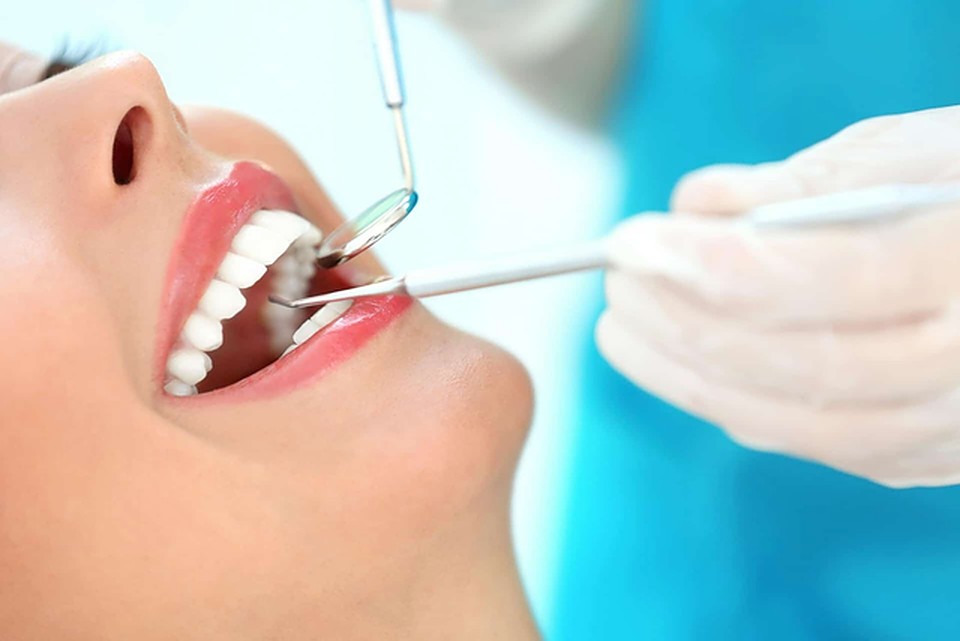Sleep apnea can be mistaken as snoring, but is more complicated than that. It is estimated that around 40% of males and 24% of females suffer from sleep apnea.
Sleep apnea is a serious condition that can lead to other health problems and should not be ignored. Although a physician diagnoses this condition, sleep apnea can be treated with the help of a dentist.
What Is Sleep Apnea?
Sleep apnea is a condition where breathing stops periodically throughout the night due to airway obstruction. It is commonly confused for snoring because stops in breathing are followed by snorting and gasping noises.
When people sleep, their body relaxes to restore and prepare for the next day. It is normal for the mouth and throat muscles to relax to a certain extent, but people with sleep apnea relax too much. The tissues in the mouth relax and fall into the upper airway. This blocks the flow of oxygen, causing temporary lapses in breathing.
You may have sleep apnea if you experience any of the following:
- Dry mouth or sore throat first thing in the morning
- Headaches when you wake up
- Sleepiness and fatigue during the day
- Your partner reports your snoring followed by silence, then choking
Negative Effects of Sleep Apnea
The complications of sleep apnea go beyond waking up your partner in the middle of the night with snoring and choking noises. It can lead to some serious symptoms including:
- Fatigue: When you stop breathing for short intervals, your body wakes up as a defense mechanism to continue normal breathing. This makes it impossible to get a full, good night’s sleep. You may notice extreme tiredness during the day, difficulty concentrating, mood swings, or depression. People with sleep apnea are at an increased risk for car and workplace accidents.
- Surgery complications: Surgery usually requires sedation and lying down on your back. Both can exasperate breathing problems associated with sleep apnea. You should always alert your healthcare providers if you have sleep apnea.
- High blood pressure: Sleep apnea induces sudden drops in levels of blood oxygen, which leads to an increase in blood pressure. Over time, this can strain the cardiovascular system and lead to hypertension (high blood pressure). This also puts you at risk for abnormal heartbeats, heart attack, and stroke. If you have a pre-existing heart condition, this puts you at an even higher risk.
- Type 2 Diabetes: If left untreated, the condition can increase your insulin resistance, leading to type 2 diabetes.
- Mental health conditions: Sleep apnea puts you at a higher risk for mental health conditions such as depression, dysthymia, bipolar, and mood disorders. You may notice a change in mood correlated with poor sleeping habits.
- Liver: The condition is linked to an increased risk of liver scarring (non-alcoholic fatty liver disease) and abnormal liver function.
How a Dentist Can Identify Sleep Apnea
A dentist cannot formally diagnose sleep apnea, but they can identify and alert you of possible symptoms. Some people are completely unaware they have the condition until a dentist alerts them of their possible symptoms. Many people separate dentists from other healthcare professionals, not realising that many health problems show warning signs via oral health.
Dentists can identify wear on the occlusal (chewing) surfaces of the teeth. It is extremely common for people with sleep apnea to have worn down teeth from clenching their jaw in the middle of the night. This can lead to problems such as excessive cavities and cracks in the teeth. Other possible warning signs of the condition are:
- Small jaw
- Scalloped edges on the tongue
- A red throat caused by excessive snoring
- Receding gum line
- Mouth inflammation
How a Dentist Can Help – Mouth Guards
If you are diagnosed with sleep apnea, a dentist can make you a custom mouth guard to prevent the root of the problem. Mouth guards hold the jaw forward and the tongue down so that your tongue does not fall back in your mouth and obstruct your airway.
There are mouth guards available over the counter, but one made customised from impressions of your mouth will have a better fit and more success. Preventing sleep apnea can improve your overall health by finally delivering a restful night’s sleep.
When first adjusting to wearing a mouth guard, patients might be tempted not to wear them. It is normal to experience some discomfort and increased saliva production at first. After your mouth adjusts to the device over time, these side effects eventually subside. If you are feeling extreme discomfort, you should schedule an adjustment to the device with your dentist.
CPAP Treatment
Continuous Positive Airway Pressure (CPAP) is another alternative device that provides relief for patients suffering from mild sleep apnea. The CPAP is a mask connected to a pump that puts pressure on your airway to keep it open at night.
Your healthcare provider can help work with you to find a properly fitting mask to encourage the use of the treatment. There are a variety of different masks such as full-face, nasal, and nasal pillows. Like mouth guards, CPAP treatment requires adjustment time. Many patients who stick with the treatment immediately notice increased energy from a full night’s rest.
Who Are Dental Devices Suited For?
Dental devices are best suited for people with mild sleep apnea and are not a cure-all for everyone. Your dentist and doctor will look at your medical history and symptoms to find what is best suited for you.
For more severe cases, your doctor may recommend surgery. For most people, however, symptoms can be relieved with the combination of a mouth guard or CPAP treatment in conjunction with weight loss and abstaining from smoking and alcohol.

